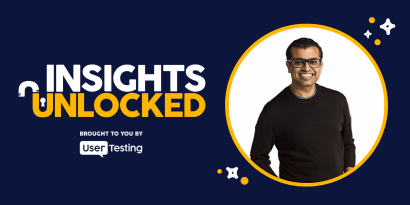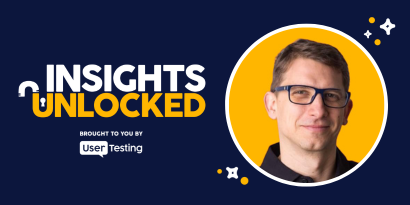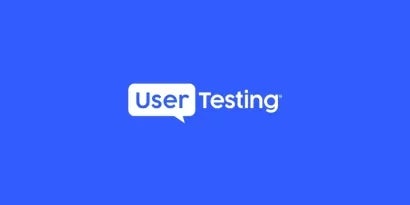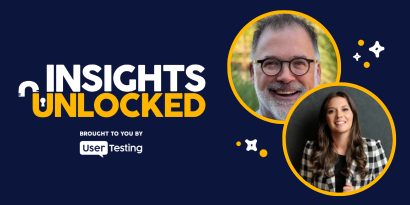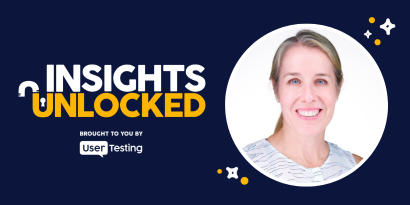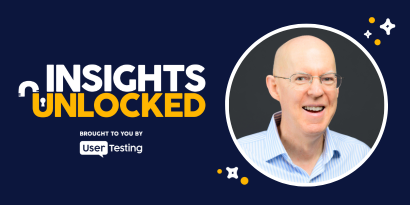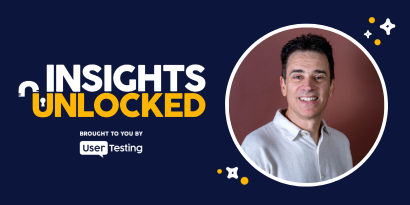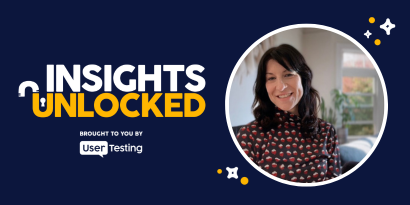
Episode 138 | September 30, 2024
Building trust in email marketing with Cornell’s Ashley Budd
Learn how to build trust in email marketing with Ashley Budd’s "Trust Triangle" framework, plus tips on AI's role in your email communications.
Building trust through email marketing: insights from Cornell’s Ashley Budd
How can marketers ensure their emails stand out in a crowded inbox and build lasting relationships with recipients?
According to Ashley Budd, Senior Director of Advancement Marketing at Cornell University, the answer lies in trust.
"People are making split-second decisions about whether or not they trust your email," Ashley shared on a recent episode of the Insights Unlocked podcast. "They really want to not trust it because they really want to delete it."
During the interview with UserTesting’s Lija Hogan, Ashley introduced the "trust triangle," a framework she uses to guide her email marketing strategies.
What is the Trust Triangle?
At the heart of Budd’s email marketing strategy is the Trust Triangle, a model introduced by Frances Frei and Anne Morriss in the Harvard Business Review. The triangle is built around three key elements: authenticity, empathy, and logic. Each of these components plays a critical role in fostering trust, and when one is missing, Budd refers to it as a “wobbly triangle” that can lead to distrust.
“Trust breaks down in three main areas,” Budd shared. “If someone doesn’t trust you, it’s likely because they doubt your authenticity, they don’t feel you have empathy for their needs, or they don’t understand the logic behind your decisions.”
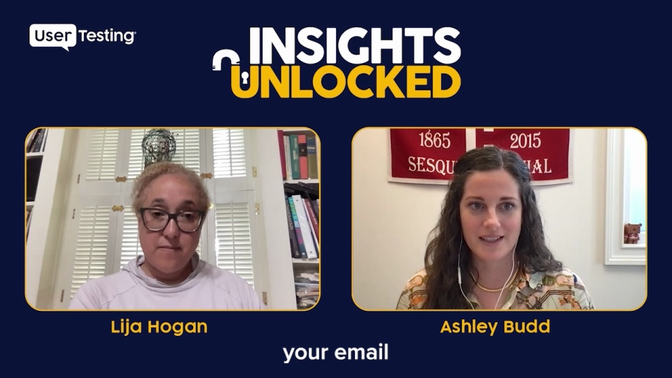
By addressing these three areas in email communication, Budd believes brands can strengthen relationships with their audiences and drive higher engagement. “People are making decisions in a split second about whether to read or delete your email,” Budd said. “That’s why it’s so important to build trust quickly and consistently.”
How to build trust in email marketing
Budd offered several actionable tips for building trust through email marketing:
- Be authentic: Ensure your “from” name and subject line match the content of the email. Avoid misleading subject lines that overpromise or exaggerate. “If you say ‘this is the most exciting rollout ever,’ but it’s not, you’re breaking trust,” Budd noted. “People can sense when something is off.”
- Show empathy: Understand your audience's needs and provide value. Budd emphasized the importance of considering how your email fits into the reader’s day-to-day life. “We send a lot of emails to Cornell alumni, and we always include a statement like, ‘Are we too much for your inbox? Let’s pause for six months.’ It’s a simple way to show empathy and reduce unsubscribes.”
- Use logic: Clearly explain the rationale behind your message. “If people don’t understand the logic behind your decisions, they won’t trust you,” Budd explained. “Make sure your emails are straightforward and easy to follow.”
"If you don’t have these three elements—authenticity, empathy, and logic—in your email marketing, people won’t trust your message." — Ashley Budd, Senior Director of Advancement Marketing at Cornell University
How AI is shaping the future of email marketing
Artificial intelligence (AI) is transforming the world of email marketing, allowing marketers to scale content production like never before. However, Budd cautioned that AI-generated emails can sometimes lack the human touch needed to build trust.
“We’ve all seen emails that feel robotic or inauthentic,” Budd said. “AI can help with productivity, but we still need to make sure our messages sound like they’re coming from real people.”
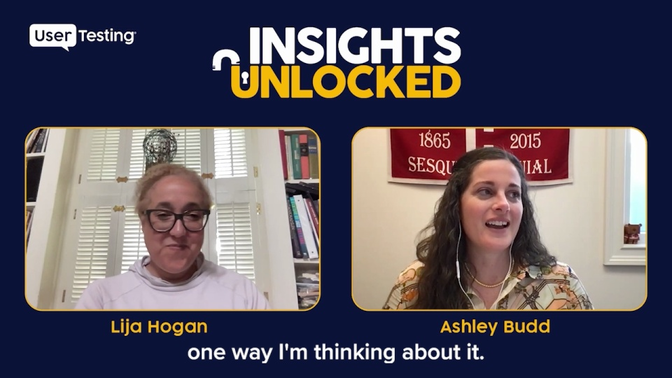
Budd also believes that AI will soon play a larger role in email filtering, helping platforms like Gmail and Outlook sort emails based on whether the content matches the subject line and “from” name. “We’re going to have to be clearer and more authentic to avoid being flagged as spam,” she explained.
Practical tips for boosting email engagement
Budd’s email marketing strategies extend beyond building trust—she also focuses on optimizing engagement. Here are a few tips she shared for improving email performance:
- Keep it simple: Use clear, concise language at a 7th to 9th-grade reading level to ensure your message is easy to understand. “Most people are just going to skim your email,” Budd said. “Make sure they can grasp the key points in a matter of seconds.”
- Reduce overwhelm: If your email is too long, break it into shorter, more digestible pieces. “Sometimes, it’s better to send four shorter emails than one long newsletter,” Budd suggested. “It’s less overwhelming for the reader and easier for them to engage with.”
- Test and measure: Pay attention to KPIs like open rates and unsubscribe rates to gauge how well your emails are performing. “If your open rate is below 20%, it’s likely that your emails aren’t even reaching real people,” Budd noted. “Track these metrics closely to improve deliverability and engagement.”

Conclusion
As the digital landscape continues to evolve, trust remains at the core of successful email marketing. By following the principles of the Trust Triangle—authenticity, empathy, and logic—marketers can build stronger connections with their audiences and see better results.
"Everything you do in email marketing should help build a trusting relationship," Budd emphasized. "If you can get that right, the rest will follow."
Episode links:
- Mailed It – co-authored by Ashley Budd, focusing on email marketing strategies. It is a practical guide for crafting emails that build relationships and get results.
- Visit ashleybudd.com for to sign up for Ashley’s newsletter Ashley in Your Inbox
- Ashley on LinkedIn
- How to Increase Trust in Consumer Technology: This blog post outlines strategies for building trust with consumers, including empathy and transparency—key themes in the podcast.
- Frances Frei and Anne Morriss: Authors of the Harvard Business Review article referenced by Ashley Budd, introducing the "Trust Triangle" framework (authenticity, empathy, and logic) discussed in the episode
